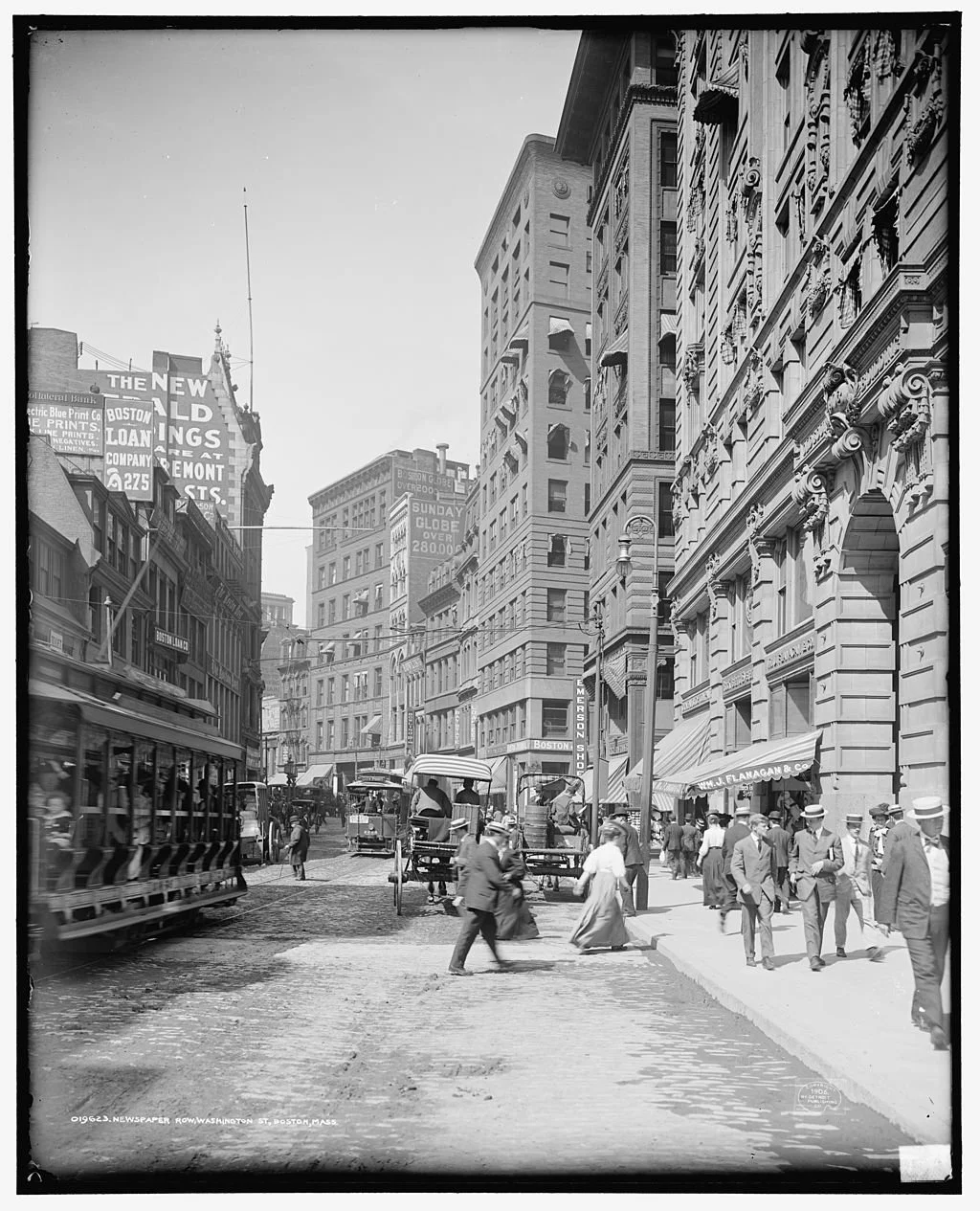Boston’s “Newspaper Row,’’ in ca. 1906, showing the locations of the Boston Post (left), the Boston Globe (center-left) and the Boston Journal (center-right)
Adapted from Robert Whitcomb’s “Digital Diary,’’ in GoLocal24.com
I’ve been reading Carl Bernstein’s new memoir, Chasing History: A Kid in the Newsroom, which is mostly about his days as an erratic high school and college student in Maryland and as a devoted copyboy, dictationist and reporter at the old Washington Star in the early and mid ‘60s. It’s a terrific tale of the sometimes inspiring, sometimes exasperating world of journalism back then. It recalled to me some of the similar stuff I saw a few years later as a news assistant at the old Boston Record American, a rather tacky tabloid, and as a reporter at the Boston Herald Traveler (RIP), a somewhat stodgy broadsheet.
Ah, the unpredictable, open-ended hours, the tense, looming deadlines, the smoking, the bad coffee, the immediate post-deadline drinking at nearby watering holes, the interviewees you thought you’d hate but ended up becoming friends with, or enemies, the speeding in cars with fins to story scenes and speeding back to write the stories before deadline and the sudden, exciting assignments to far-away places. Meanwhile, you’d gradually put together a sort of mental Geiger counter to determine with increasing, in fits and starts, acuity if sources were lying to you.
Then there were the printers in the intensely unionized composing rooms who would stage a wildcat strike and/or tip over a page of the lead type spat out from clanking Linotype machines if someone from the newsroom so much as lightly touched the type.
One of Bernstein’s recollections particularly caught my eye: Reporters were sometimes called upon to get a picture of a recently deceased person – killed usually in a car accident or crime -- from his or her survivors to run with a story about the death. We called these assignments “takeouts.’’
I did a few myself, with trepidation. You’d knock on their door, looking mortified, make the request for the picture, which you’d promise to return as soon as it was in the paper, and ask if you could chat with them a bit about their loved one for the article to run with the picture. Rather than being enraged by my bothering them at such a sad, traumatic time, I found that they usually wanted to talk about the victim’s life. Thus I sat at kitchen tables hearing their stories. That I looked younger than my years probably made them more sympathetic about my invasion. Still, it was often tense and of course tearful.
Then there was the editor, who, after a too-long liquid lunch, lit his tie on fire after his cigarette fell from his lips as he nodded off.
Ah, newspaper days: Bad for your health but good for a lifetime supply of anecdotes.
xxx
Bernstein and his Watergate scandal reporting partner at The Washington Post, Bob Woodward, agree that Trump has been more dangerous to democracy and more corrupt than Nixon, as bad as he was.
In an earlier time, Trump, a cancer on the body politic, would be facing the gallows, and rightly so.
Then there’s the low life working for him, and the millions of suckers who voted for him. Some would have voted for Hitler, too.
At work in Linotype machines in 1935












